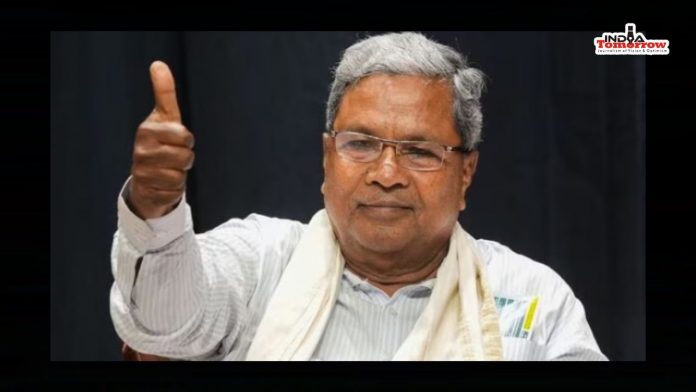Besides scrapping the amendments in the anti-conversion law introduced by the erstwhile BJP government, Congress government in Karnataka has also decided to remove chapters on Hindutva ideologue VD Savarkar and RSS founder KB Hedgewar, besides a chapter by right-wing orator Chakravarthy Soolibele, from history textbook in schools.
India Tomorrow
BENGALURU—In a significant move, Karnataka government on Thursday decided to repeal the amendments in the anti-conversion law introduced by the erstwhile BJP government and also remove chapters on Hindutva ideologue VD Savarkar and RSS founder KB Hedgewar from history textbooks, besides a lesson authored by right-wing orator Chakravarthy Soolibele. The chapters were included last year.
The BJP government had ironically named its as Karnataka Protection of Right to Freedom of Religion Act, 2022 though it curbed the right to choose a religion of one’s choice.
The decision was announced by state’s Law and Parliamentary Affairs Minister H K Patil after the cabinet meeting.
This was one of the promises the Congress had made during their election campaign and in fact, had opposed the concerned bill in the Assembly too.
The matter was taken to court where the Christian ogranisations had argued that the new law violated religious freedom.
The Congress government led by Siddaramaiah will now introduce a bill for deleting the amendments in the anti-conversion law in the state legislature session scheduled to start on July 3.
Apart from reversing the changes in the school syllabus made by the BJP government, the Karnataka state cabinet has also decided to make it compulsory to read the Preamble of the Constitution.
It is now expected that the government will withdraw the Hijab ban also or at least ease that as it had affected the education of many girls.
The anti-conversion law promulgated by the BJP government was said to be stopping people from practicing/adopting/converting to the religion of their choice in the garb of stopping forced and fraudulent conversion.
Karnataka’s law and parliamentary affairs minister H K Patil who announced the cabinet decision said, “With this, the state government will restore the freedom given to the people by the Constitution to profess any religion they wish which was taken away by the BJP government under the guise of stopping forced conversion.”
The anti-conversion law had become a point of contention between BJP and Congress. It was pointed out that the said law was a tool for the harassment of minorities.
Siddaramaiah, then in the opposition, had said, “Our law is capable of stopping conversion that is forced through incentives and threats. Then what is the need for a new law? The only reason is to threaten and harass minorities.”
After the announcement of the withdrawal of the amendments in anti-conversion law, BJP is trying to paint the Congress party as the ‘new Muslim league’. BJP national general secretary CT Ravi, who lost the Assembly election, alleged that the Congress ‘would do anything to hurt Hindus’. Another BJP leader BR Patil asked, “Is this Mohabbat Ki Dukan, Mr. Rahul Gandhi?”
The anti-conversion law in letters prohibited unlawful conversions from one religion to another by misrepresentation, force, undue influence, coercion, allurement, or any fraudulent means but in spirit, it meant completely stopping any conversion of religion. Apart from the Congress, the Janata Dal (Secular) had also opposed the BJP government’s amendments in anti-conversion bill.
According to the Bar & Bench website, Section 3 of the Bill criminalized conversion from one religion to another by misrepresentation, force, fraud, undue influence, coercion, allurement, or by a promise of marriage.
Any contravention of the Section was punishable with imprisonment for a term of three years, which could extend to five years, and a fine of ₹25,000.
In the case of conversion of a minor child or a person of unsound mind or a woman or a person belonging to the Scheduled Caste or Scheduled Tribe, the imprisonment term imposed was extended to 10 years along with a fine of ₹25,000.
There were two strong objections to the BJP government’s anti-conversion law. One was that the burden of proof to show that a religious conversion was not effected through misrepresentation, force, undue influence, coercion, allurement, or by any fraudulent means or by marriage, lay on the person who caused the conversion and on any abettor aiding or abetting such conversion.
The other was that the anti-conversion law made it mandatory for a person who converts to another religion to declare his/her intention before such conversion and at least thirty days in advance to the concerned District Magistrate or the Additional District Magistrate.





